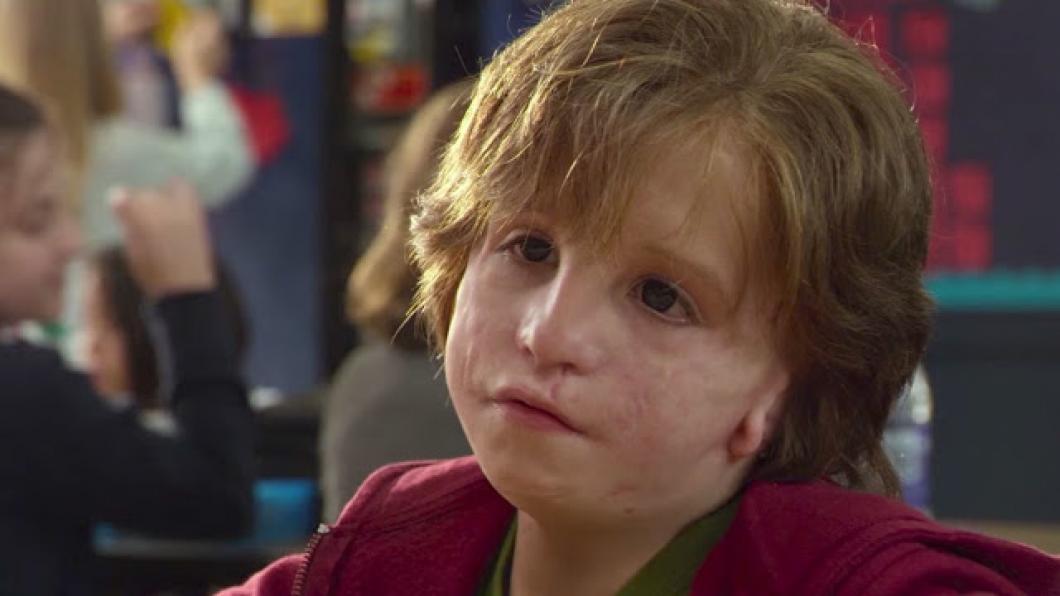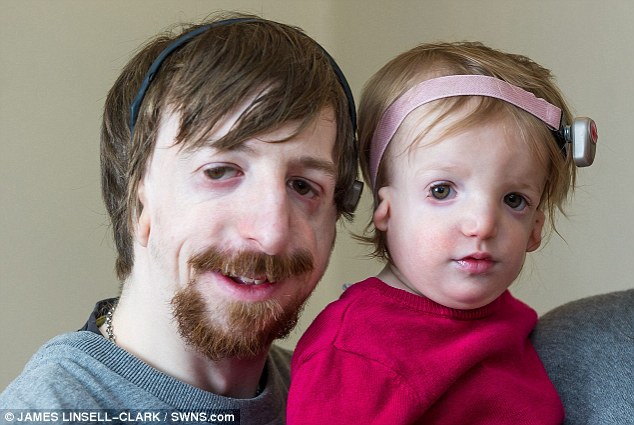
A mask doesn't belong in a film about courage to be who you are
By Louise Kinross
I read R. J. Palacio’s book Wonder—about a boy called Auggie with a craniofacial condition that elicits stares and fear—back in 2012.
In an e-mail to the author on June 29 that year, I wrote: “I loved the book. In particular, I felt the recognition by Via (Auggie’s sister) of the two ways of seeing Auggie—the one of wholeness and beauty she saw in her mind’s eye vs. the picture of horrifying defects others saw, which she eventually gets a glimpse of—was very credible and real.”
I also wrote about the one part of the book that disappointed me. It happened on page 277, when Auggie’s mom refers to some Grade 7 bullies as “morons” and “imbeciles” and “cretinos.”
Reading that paragraph stopped me in my tracks. It hurt my head.
Why, in a book about accepting differences, would the respected and loving mother figure use labels for people with mental disabilities as put-downs?
Palacio responded on July 14, and apologized. “Please keep in mind that she was referring to the bullies who targeted her son, not kids with developmental challenges,” she wrote.
And yet, we know that slurs are cutting precisely because of their origins.
I don’t use the word “lame.” Decades ago, people would have used the term to describe the lop-sided gait of my son. I realize that people today mean “useless” in a generic sense when they say it. But the word’s origins made people who walk differently feel “other” and “abnormal.” That's where the word got its power and punch.
I’ve heard many parents say they read the book Wonder with their kids, and I’ve always questioned what they said when they got to that part on page 277 about the morons, imbeciles and cretinos. Did they just read over it? Did they talk about why those words negate the main message of the book?
It would be like the mom referring to a bully as a cripple, or using a racial epithet.
I haven’t seen the movie Wonder. I know parents of kids with and without disabilities love it. I know it has beautiful messages about inclusion and kindness. I'm sure it's sparking important discussions about difference.
However, when I heard that the boy playing Auggie would spend two hours a day in makeup and prosthetics to approximate the face of a child with Treacher Collins syndrome—the condition Palacio based the book on—it lost its appeal.
When my son was a baby, I got involved with AboutFace in Toronto. They support kids with facial differences like Auggie’s, and their families. The variety of disorders that can affect the face, skull and neck is huge. According to a similar group in the U.S.—FACES—one in every 650 children is born with a craniofacial condition. Surely with those numbers, and with the resources behind Lionsgate Films, a boy with some kind of facial difference could have been cast to play Auggie.
According to this piece in the Daily Mail, Wonder's author Palacio “lobbied hard to have a child with Treacher Collins syndrome star in the film.”
The producers did fly in a boy called Nathaniel (with an undisclosed facial difference) for a screen test, the Daily Mail reported. But, as Palacio said in the piece: “Nathaniel had physical limitations, he was hard to understand, and if you have a $20-million movie, you have to make that call.”
Isn’t that the same argument that’s made every time someone gets turned down for a job because of their disability? It would just be too hard to adapt.
If producers were concerned about the child’s speech intelligibility, they could have used captions on theatre screens (what a great way to raise awareness about accessibility?). By the end of the movie, viewers probably would have gotten the hang of it.
Lionsgate uses this tagline for the film: Who gives you the courage to face the world?
In my view, the producers lacked the courage to turn the movie Wonder into the real deal by casting a boy living with a facial difference. It didn't have to be Treacher Collins. But it had to be a real facial difference.
Here’s how a couple of adults with craniofacial disorders and a parent wrote about the casting decision.
“It was devastating to realize that the directors involved with Wonder would rather cast a healthy, 'normal' looking child and put him in makeup and prosthetics, rather than cast someone who looked like me,” wrote Ariel Henley, who has Crouzon syndrome, in Teen Vogue. “I’ve gone my entire life without ever seeing someone with life experiences similar to my own represented on the big screen.”
Mike, who identifies as disfigured, and who I follow on Twitter @guysmiley22 tweeted: “It really, really, really makes me upset to see Jacob Tremblay in that mask. Like our disfigurements are a costume…As if disfigured people don’t exist.”
Sue Robins, a parent who has worked in family engagement in children’s rehab, likened the casting to hiring a regular child to play a child with Down syndrome, then putting them in intensive makeup to mimic the facial features associated with the condition.
There are plenty of child and adult actors with Down syndrome.
Doesn't imagining a child actor wearing a Down syndrome “mask” convey the absurdity of the Wonder casting choice?”
There’s no reason a child with a craniofacial condition couldn’t have played Auggie in Wonder. That should have been a non-negotiable.
Because authenticity, and words, matter.
Below is a photo of Simon Moore and his daughter Alice, who both have Treacher Collins syndrome. The British family was interviewed in the Daily Mail in 2015. The photo is by James Linsell-Clark.
